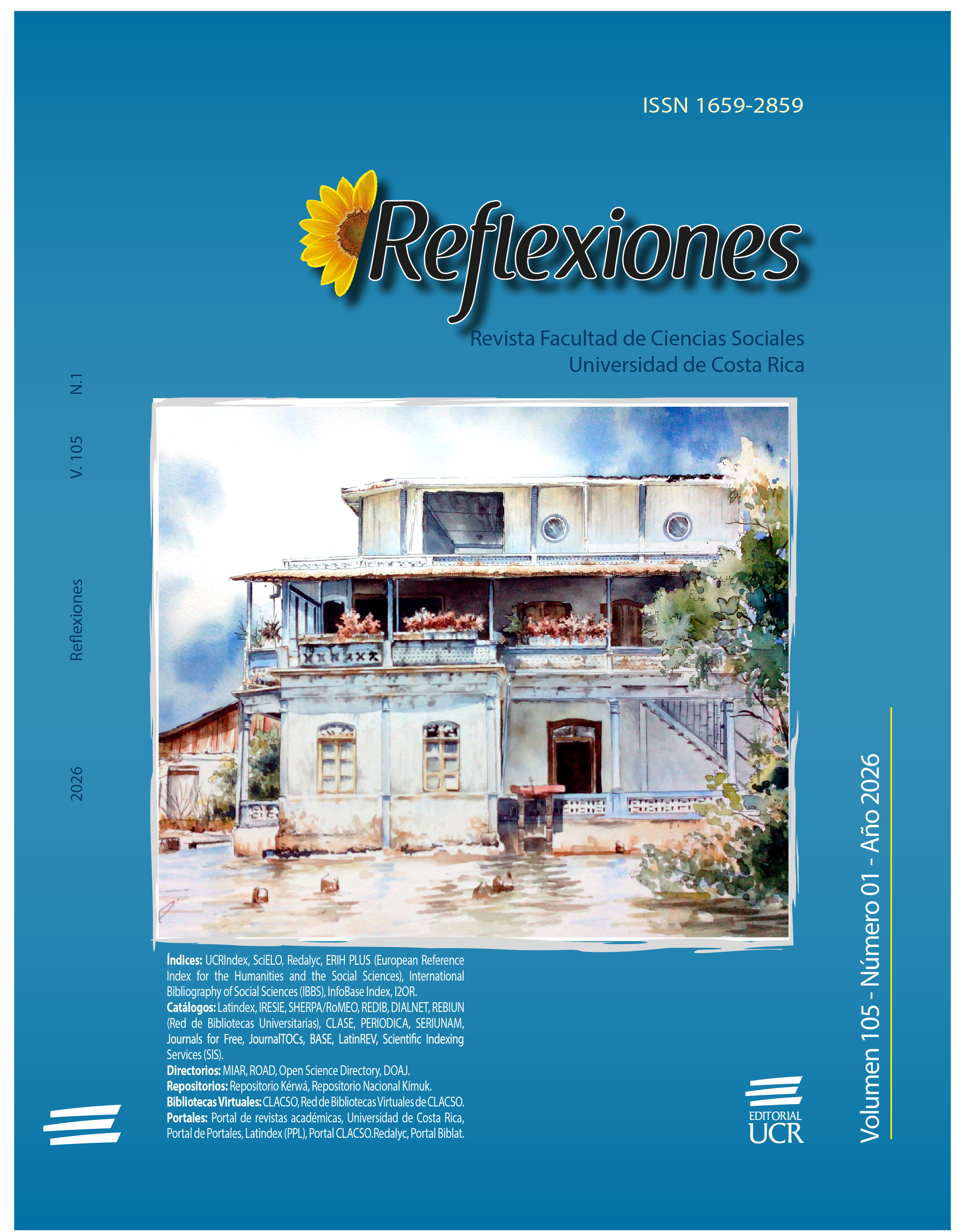Life Experiences in the Informal Settlement of Martina Bustos in Liberia, Guanacaste (1940-2020)
DOI:
https://doi.org/10.15517/9cy8nk30Keywords:
Informal settlement, Human rights, Social inequality, Marginalization, Rural populationAbstract
Introduction: This article examines the life experiences of the inhabitants of the informal settlement of Martina Bustos in Liberia, Guanacaste. It explores their childhood, family background, and current circumstances in terms of education, employment, and economy, as well as their daily dynamics in a community with limited access to basic services.
Objective: To highlight the communal and personal experiences of the inhabitants of the Martina Bustos informal settlement, considering social and structural conditions regarding basic rights from 1940 to 2020.
Method and technique: Twelve semi-structured interviews were conducted with five men and seven women aged 26 to 83. The interviews were recorded, transcribed verbatim, and analyzed for content. Confidentiality and anonymity were ensured through signed agreements detailing the study’s objectives and participants' rights.
Results: Residents of the Martina Bustos informal settlement face challenges stemming from impoverished backgrounds, reflected in limited education, economic instability, and restricted access to basic services. Community organizations play a crucial role in mitigating these inequalities.
Downloads
Downloads
Additional Files
Published
Issue
Section
License

This work is licensed under a Creative Commons Attribution-NonCommercial-NoDerivatives 4.0 International License.
Open Access Magazines Proposed Policy
The authors who publish in Reflexiones Journal agree with the following terms:
a. The authors preserve the article´s copyright and grant the journal its first publication. The work [SPECIFY PERIOD OF TIME] must be licensed after its publication under a:
a. The authors retain the copyright and grant to the journal the right of first publication, with the work [SPECIFY PERIOD OF TIME] as well as after publication is licensed under a Creative Common CC BY-NC-ND 4.0 DEED (Attribution-NonCommercial-NoDerivs 4.0 Internationa) that allows others to share the work with an acknowledgment of authorship of the work and initial publication in this journal.
b. The authors can separately establish additional agreements for the non-exclusive distribution of the published version (for example, place it in an institutional repository or publish it in a book), but, as stated above, with the recognition of its initial publication in this magazine.
c. Authors are allowed and encouraged to circulate their work electronically (for example, in institutional repositories or on their own website) before and during the submission process, as it can lead to productive exchanges, as well as an earlier and greater citation of their published works (See The Effect of Open Access).
d. Reflexiones Journal does not apply any fee or charge for the publishing process.
The authors who send their manuscripts to be evaluated by Reflexiones Journal, assign to it the publication rights for the article’s circulation in printed version or digital format. By being part of multiple indexers, databases and reference systems, the articles that are published by this journal will be available and downloaded from these websites, indicating, in all cases, the articles’ authorship, date of publication, and the number to which they correspond. All the documents published by Reflexiones can be downloaded on the journal’s website: https://revistas.ucr.ac.cr/index.php/reflexiones, and in all the databases where it is indexed.
The journal respects and follows all of the established by the Law No. 6683 Law on Copyright and Related Rights of the Republic of Costa Rica, as well as its reform in the 7979 Law.
Finally, Reflexiones applies in its publications the Creative Commons License, which can be consulted in the following link: https://creativecommons.org/licenses/by-nc-nd/4.0/deed.en





